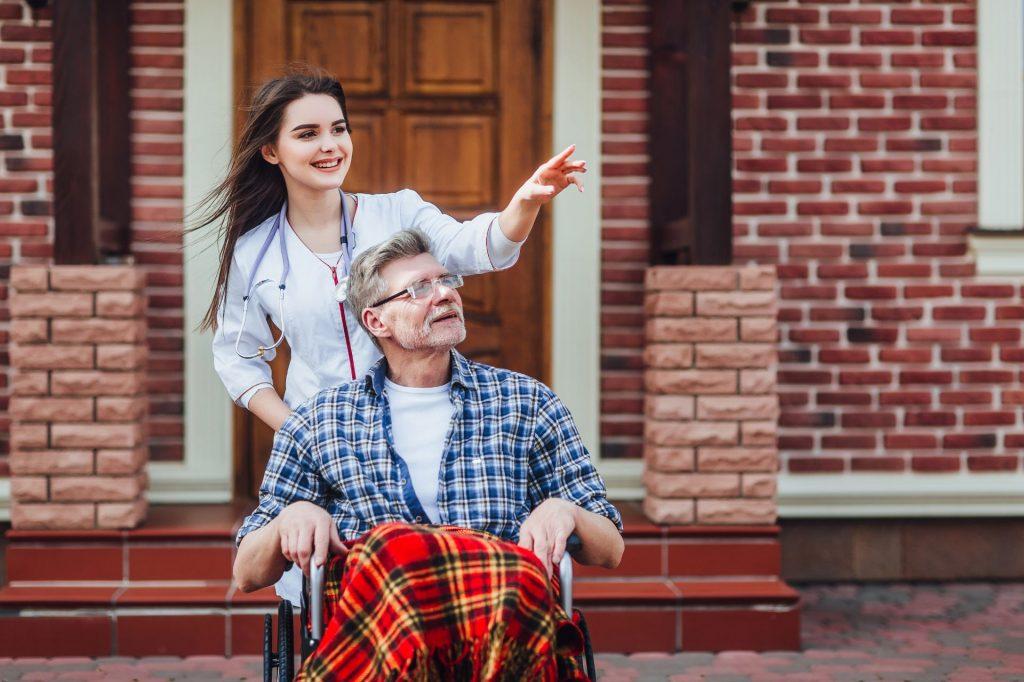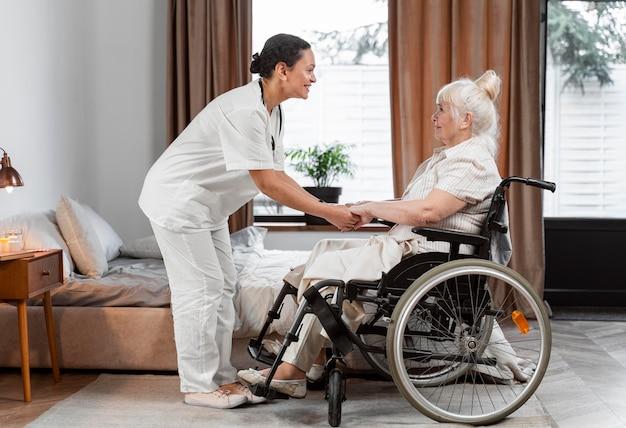
Falls are a leading cause of injury and death among residents of nursing homes. In fact, according to the Centers for Disease Control and Prevention (CDC), over one-third of nursing home residents fall each year. These falls can result in serious consequences, including hip fractures, head injuries, and even death.
Understanding the causes of falls and the actions you can take can help protect your loved ones. You might have Googled “What to do if my mom fell in a nursing home?” Well, here’s the answer.
Why are Falls So Common?
Several factors contribute to the high incidence of falls in nursing homes, including:
- Age-related decline: As we age, our balance, vision, and muscle strength naturally weaken, increasing the risk of falls.
- Medical conditions: Many nursing home residents have chronic health conditions like arthritis, Parkinson’s disease, or dementia, which can further impair mobility and balance.
- Medications: Certain medications can cause dizziness or drowsiness, increasing the risk of falls.
- Environmental hazards: Wet floors, poor lighting, loose rugs, and improperly fitted grab bars can all create tripping hazards.
- Understaffing: With limited staff available, residents may not receive the necessary assistance they need with mobility and transfers.
The Devastating Impact of Falls
Falls in nursing homes can have a devastating impact on residents’ physical and emotional well-being. Here are some of the potential consequences:
- Physical injuries: Hip fractures are a common outcome of falls, often requiring surgery and extensive rehabilitation. Even minor falls can lead to sprains, bruises, and cuts.
- Loss of independence: Following a fall, residents may become fearful of moving around independently, leading to a decline in mobility and overall function.
- Increased pain and discomfort: Injuries sustained in falls can cause significant pain and discomfort, impacting residents’ quality of life.

- Psychological distress: Falls can damage a resident’s confidence and lead to feelings of anxiety and depression.
The Actions You Need to Take
If you learn your mother fell in a nursing home, it’s crucial to take immediate action:
- Assess the situation: Gather information about the fall, such as the time, location, and cause. Inquire about any injuries sustained and the medical attention provided.
- Request a copy of the incident report: Nursing homes are required to document all resident falls. Review the report for details about the circumstances surrounding the fall.
- Talk to the nursing home staff: Express your concerns about the fall and inquire about the facility’s fall prevention measures.
- Consult a doctor: Ensure your mother receives a thorough medical evaluation to diagnose any injuries and determine appropriate treatment.
- Consider legal counsel: If you suspect negligence played a role in the fall, consulting an attorney specializing in nursing home neglect cases can help determine if you have legal options to pursue.
Taking Action to Prevent Falls
Here are some actions you can take to help prevent falls and protect your loved one:
- Talk to your doctor: Discuss your mother’s fall with her doctor and inquire about medication adjustments or assistive devices that might help.
- Work with the nursing home staff: Collaborate with the staff to develop a personalized fall prevention plan for your mother. This may include ensuring proper footwear, medication management, and assistance with mobility tasks.

- Advocate for your mother: Be an active voice for your mother. If you have concerns about the level of care she is receiving, don’t hesitate to voice them to the nursing home staff or appropriate authorities.
- Stay informed: Educate yourself about fall prevention strategies and resources available for nursing home residents.
Conclusion
Falls are a serious concern in nursing homes. By understanding the risks, taking preventative measures, and advocating for your loved one, you can help keep them safe and ensure they receive the care they deserve. If you have specific questions about your mother’s situation, consulting an attorney is always recommended.










